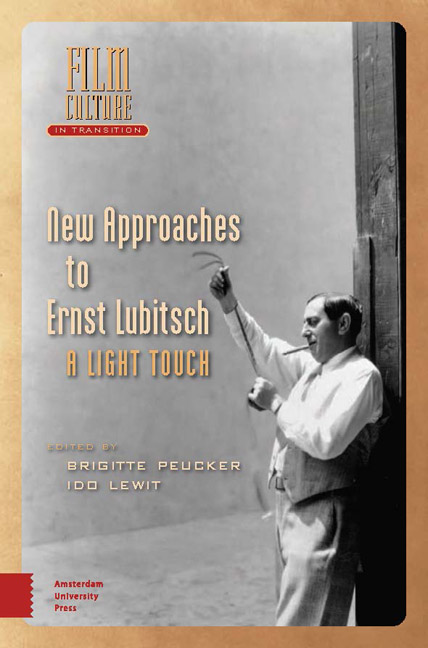12 - That Uncertain Feeling and the Symptoms of Married Life
Published online by Cambridge University Press: 16 April 2024
Summary
Abstract
Between The Shop Around the Corner (1940) and To Be or Not to Be (1942), Lubitsch directed the screwball comedy That Uncertain Feeling (1941), which returns to the themes of his marital comedies and explores the model of the romantic triangle. This essay traces both the fusion of genres in this understudied work and the film's engagement with psychoanalysis, which allows us to reframe and reconfigure formal sensibilities such as repetition, indirect storytelling, and displacement. The essay suggests that what is considered a minor Lubitsch film can reintroduce us to the sophistication of his style by way of the symptoms of married life.
Keywords: psychoanalysis, love, media objects, comedy of remarriage, style
“The finding of an object is in fact the refinding of it.”
‒ Sigmund Freud, “Three Essays on the Theory of Sexuality”Between the success of The Shop Around the Corner (Lubitch, 1940) and the masterpiece To Be or Not to Be (Lubitsch, 1942), Ernst Lubitsch directed the comedy That Uncertain Feeling (1941), based on a script by Donald Ogden Stewart (The Philadelphia Story [George Cukor, 1940]). While his other works of the period engage in international politics, this film returns to the earlier themes of his marital comedies and explores the failures and flaws of marriage. Lubitsch's take on the popular American screwball of the 1930s was shot “quickly and effortlessly,” as biographer Scott Eyman remarks, between October and December 1940, and released the following April. Lubitsch's first independent production and one of his only films to take place in an American setting, That Uncertain Feeling is a remake of one of the director's earlier silent comedies, the lost film Kiss Me Again (Lubitsch, 1925), which was based on the nineteenth-century French farce “Divorçons!” by Victorien Sardou and Émile de Najac. Whereas Kiss Me Again was highly successful (Lea Jacobs quotes the Variety review on the film that announces that “there is a [Lubitsch] touch that will cause audiences to gasp”), the 1941 version was not as effective, and the critical reception for the film was rather indifferent.
- Type
- Chapter
- Information
- New Approaches to Ernst LubitschA Light Touch, pp. 231 - 246Publisher: Amsterdam University PressPrint publication year: 2024

